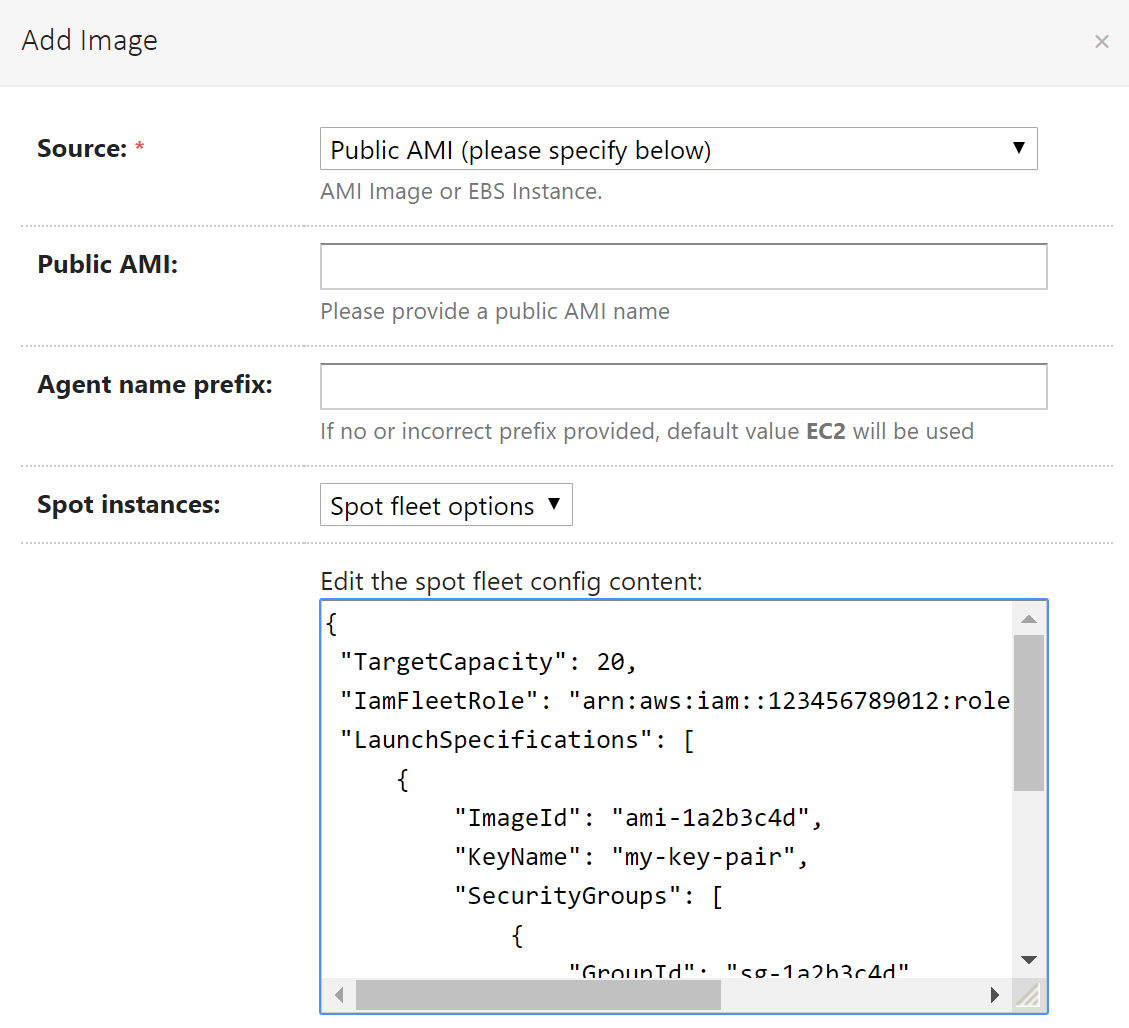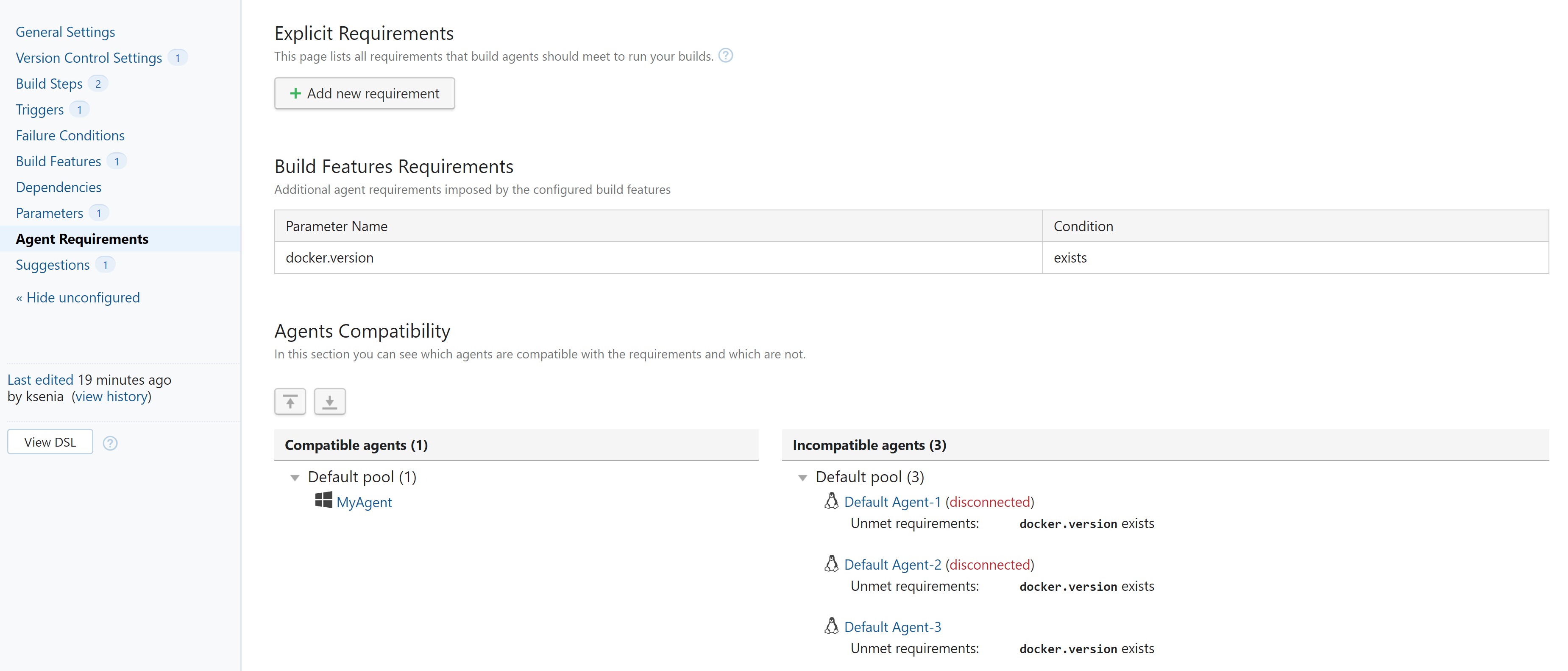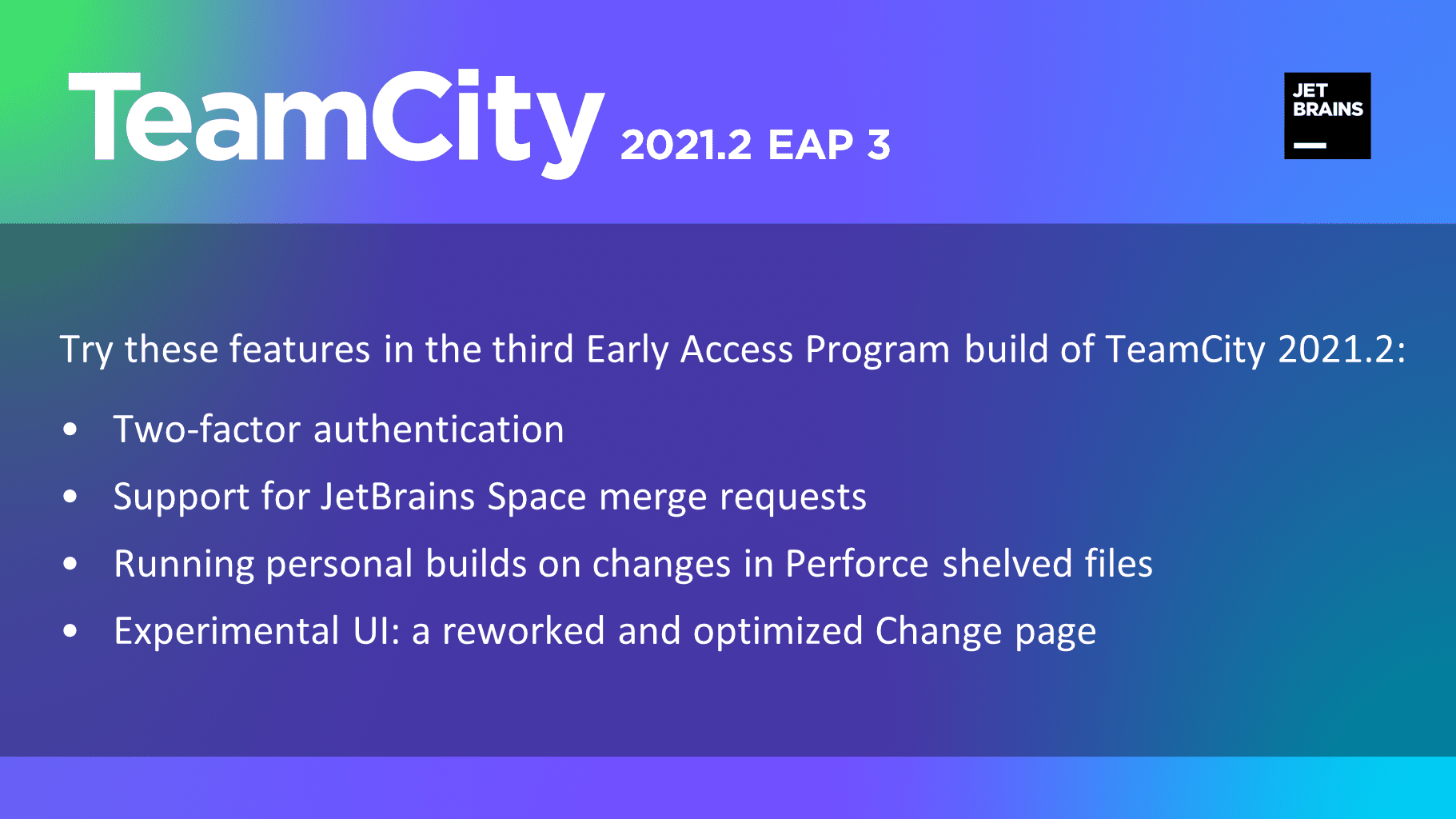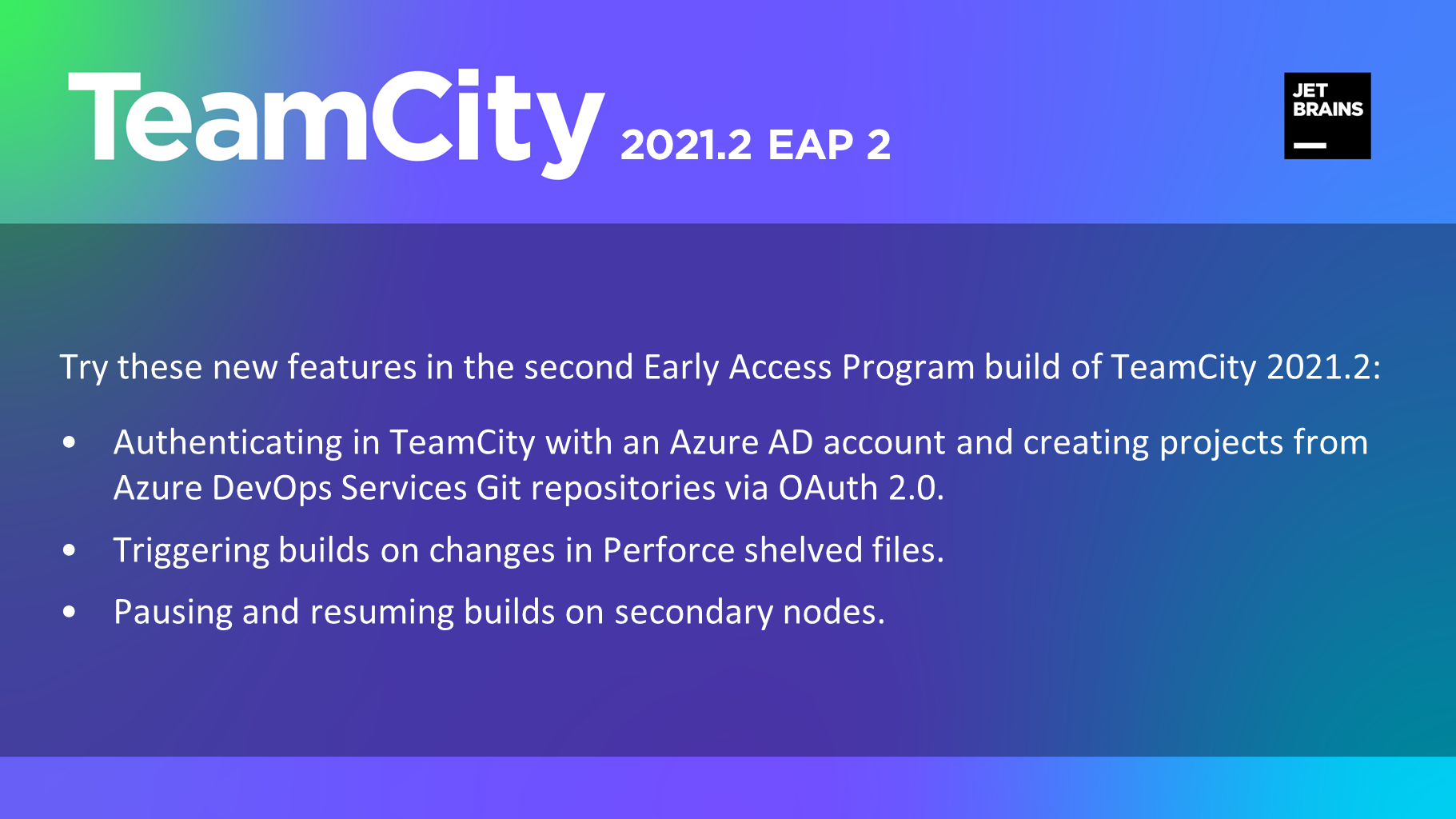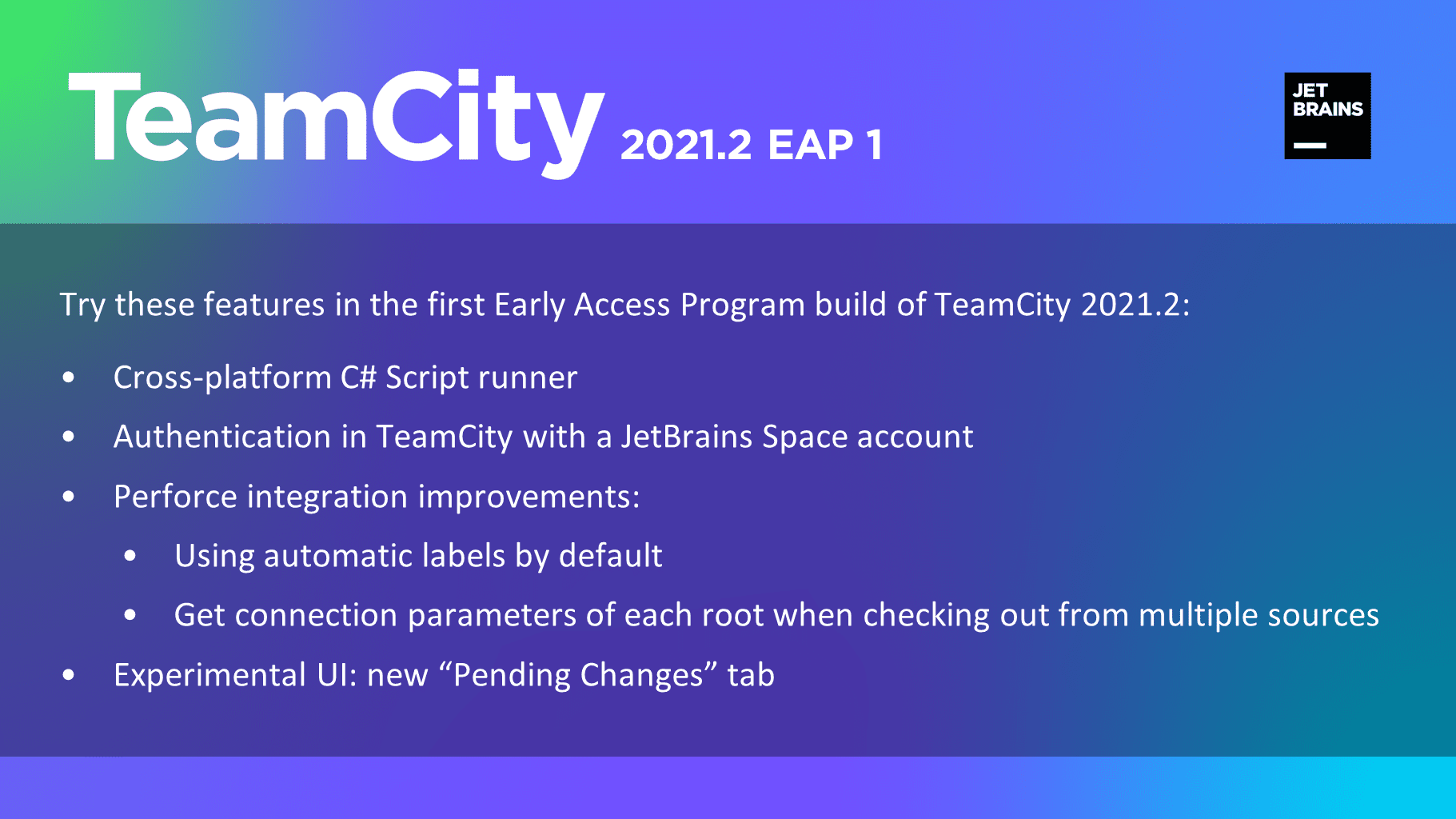TeamCity
Powerful CI/CD for DevOps-centric teams
TeamCity Kanpur 2019.1 EAP3 is here
We are glad to present you the third and final Early Access Preview (EAP) version of TeamCity 2019.1.
In this EAP, we are introducing the following features:
- Improvements for Amazon spot instances
- Build artifacts publishing options
- Docker requirement for build agents
- Parsing of Go tests
- Token-based authentication
- New documentation website
Improvements for Amazon spot instances
Many of our users benefit from launching cloud images on Amazon spot instances. The spot fleet functionality allows you to use instances even more efficiently.
With a spot fleet option enabled for an image, you can apply the capacity allocation strategy which suits your project the best.
Build artifacts publishing options
Build artifacts publishing is now more flexible. Previously, the artifacts were published only for completed builds, either successful or failed. We have added two new options:
- Publish artifacts only if a build is completed successfully. This allows saving disk space by restricting publishing only to cases when all build steps are successful.
- Publish artifacts for all builds, even for interrupted ones. This helps investigate an interruption problem by inspecting the artifacts.
Docker requirement for build agents
The bundled Docker Support plugin now sets requirements for build agents. If you add the ‘Docker Support’ feature to a build configuration, TeamCity will check all available agents and put those with installed Docker to the ‘Compatible agents’ list.
Parsing of Go tests
TeamCity now can parse Go tests. To enable the Go processor for a project, add the ‘Golang’ feature to a build configuration. To generate tests:
- either append the ‘-json’ flag to the ‘go test’ command in the script of a Command Line build runner
- or add the ‘env.GOFLAGS = -json’ parameter to the build configuration.
Token-based authentication
In addition to basic HTTP authentication, TeamCity now supports authentication based on permanent access tokens. With tokens, you don’t need to expose a user login and password in scripts. Instead, you can send a token in an authentication header when querying the TeamCity API. You can generate new tokens in TeamCity or delete them any time.
New documentation website
To create a better experience and ensure a common look and feel across the documentation of all JetBrains products, we moved TeamCity documentation to a new platform. The documentation for previous versions stays in Confluence.
The Plugin Development Help is now residing on a separate site. Its source files are moved to the public GitHub repository so our community can contribute.
The detailed feature description and the list of fixes are available in our Release Notes.
As usual, the new release changes the TeamCity data format and, since the version 2019.1 is still in development, we recommend installing it on a trial server.
You are welcome to try the new EAP build and share your feedback on our forum or tracker.
Happy building!
Subscribe to TeamCity Blog updates

